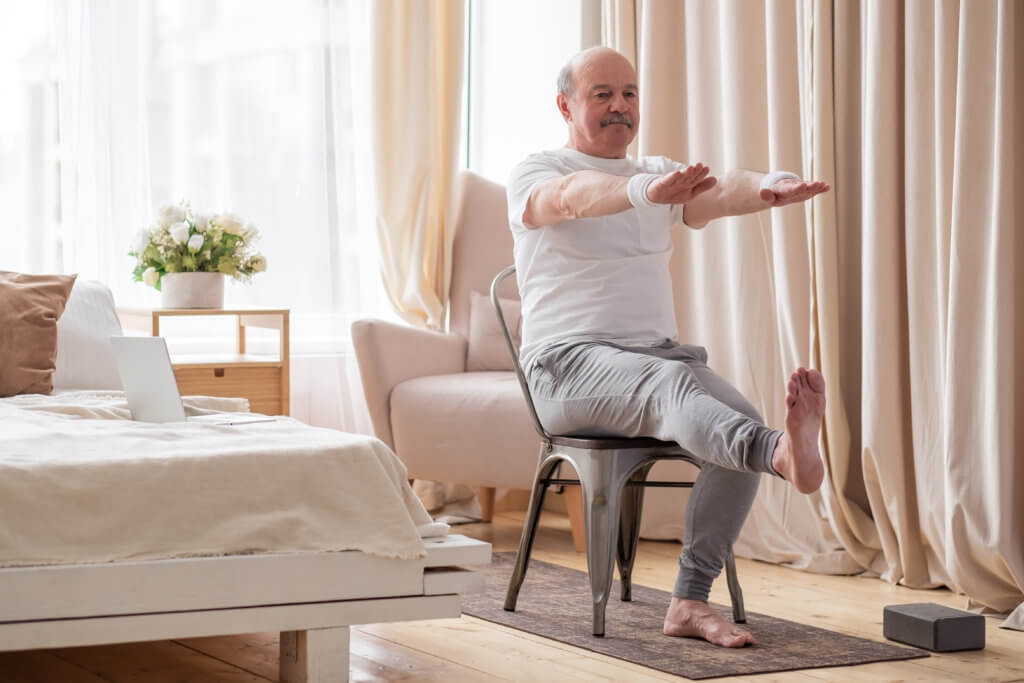Dementia may be best known for its damaging effects on cognition and memory, but it can also worsen one’s physical abilities. Chair yoga is one practical response that patients are turning to, but there’s several challenges that can prevent elderly dementia-sufferers from attending in-person yoga classes. Many patients can’t practice safe physical fitness at all due to reliance of caregivers, cost, travel, and most recently, the COVID-19 pandemic. Now, a team of researchers from Florida Atlantic University are revealing one easy way to alleviate these burdens.
The team conducted a novel study that evaluated a remote and supervised online chair yoga intervention specifically for this demographic, measuring clinical outcomes virtually via Zoom with guidance. The study analyzed the suitability of this intervention and determined the relationship between chair yoga and clinical outcomes of pain interference, mobility, risk of falling, sleep disturbances, and feelings of loneliness.
Participants took part in 60-minute sessions twice per week for eight weeks. During sessions, the yoga interventionist was shown on the Zoom screen to allow those in the class to only see them. This allowed participants to only focus on them, without distraction from others. “Our study participants worked with a certified yoga interventionist and their caregivers and practiced breathing techniques and intentional practice; physical postures; and guided relaxation and visualization,” says senior author and principal investigator Juyoung Park, a professor at FAU’s College of Social Work and Criminal Justice.
Behavioral and cardiac data were collected remotely at the before, mid-intervention, and after. The study shows that remotely supervised online chair yoga is a solid approach that works for managing physical and psychological symptoms in isolated older adults with dementia. They saw a 70% retention rate and an 87.5% adherence rate, with no reports of injuries or particularly harmful outcomes.
“This finding is important, as older adults with dementia and their caregivers may be challenged in attempts to attend chair yoga programs at community facilities,” adds Park.
The research team is pleased with their results. Adopting this method is a quick way to enhance care for socially-isolated adults suffering from dementia. Being able to tune into fitness classes online not only can help relieve them of the mental burden that the condition poses on their lives, but also provide physical activity opportunities in a far more accessible and familiar way that’s from the comfort of their own home. Further, those in underserved and rural areas can still reap the many benefits of in-person yoga classes.
This study is published in the journal Complimentary Therapies in Clinical Practice.












